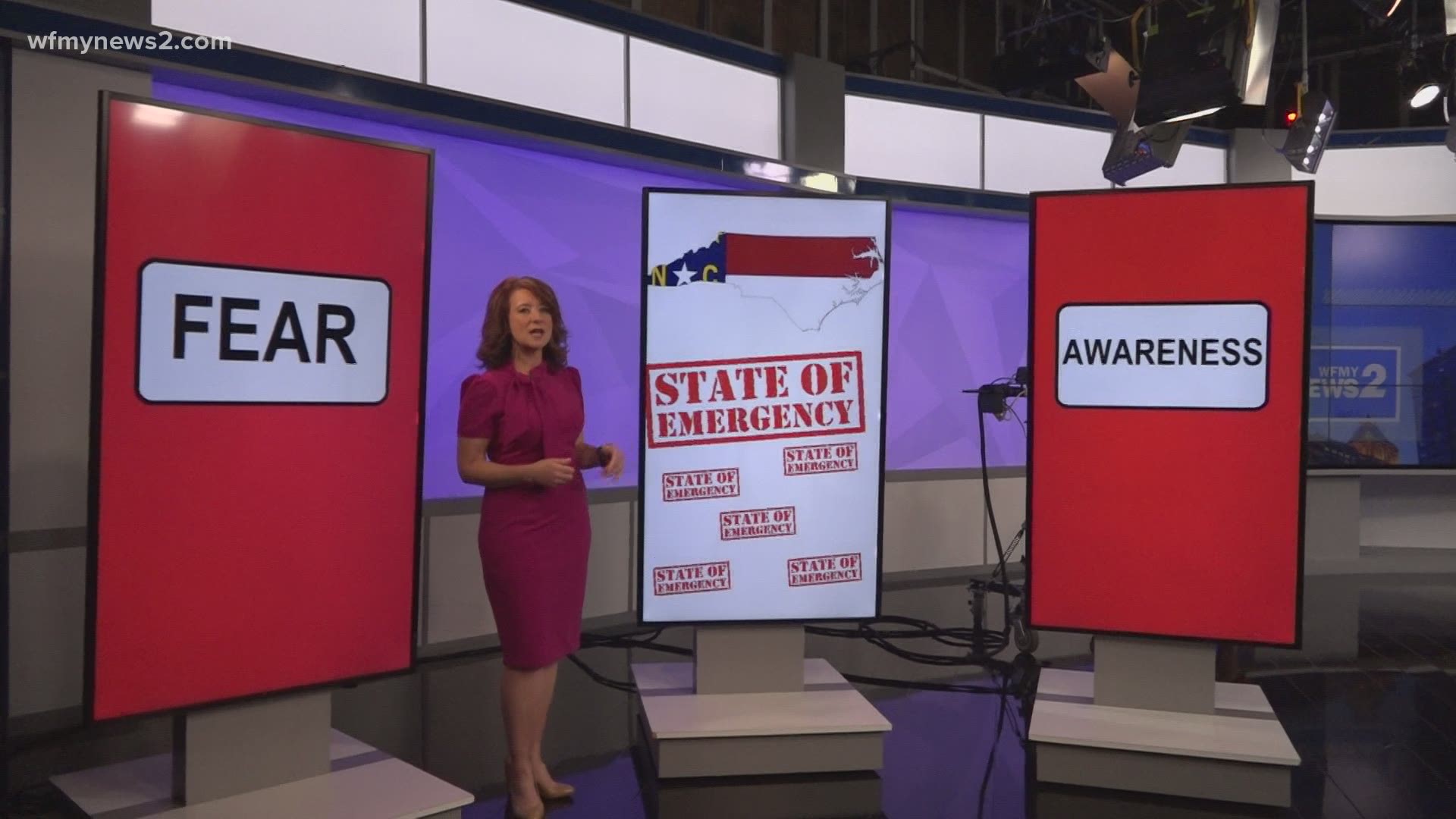GREENSBORO, N.C. — NC Governor Roy Cooper declared a State of Emergency due to the Colonial Pipeline issues. Emergency makes it sound like you should be fearful, but really, it's to make you aware and put resources in place to help you.
The formal definition of State of Emergency is a situation of national danger or disaster in which a government suspends normal constitutional procedures in order to regain control.
In this instance in NC, that means fuel tax requirements, registration requirements, size, and weight requirements for the trucks carrying in fuel are waived for a specific amount of time. This helps get you supplies faster.
States of Emergencies often free up money resources and other help so that whatever situation is happening, the government is able to meet needs.
But let's face it, when you hear the words State of Emergency, the awareness often turns into fear. The Governor knows that which is why he tweeted out Tuesday when he declared the State of Emergency:
Report price gouging and please don't rush to the top of your tanks.
Unfortunately, there was a rush to top off tanks but the governor talked about yet another resource from the State of Emergency, the price gouging law.
Price gouging is when a business unreasonably raises the prices of goods for services to profit from the state of emergency. There have been nearly 300 price gouging complaints made to the state so far.
How to report a price-gouging complaint?
You can report high gas prices or price gouging by calling 1-877-5-NO-SCAM or by filing a complaint with the NCDOJ’s office. The office will then review the complaints and possibly take action against a business.

